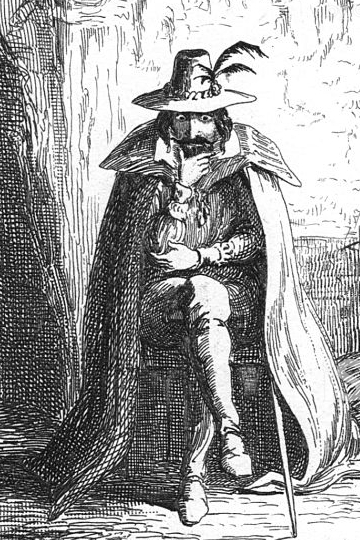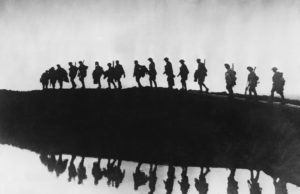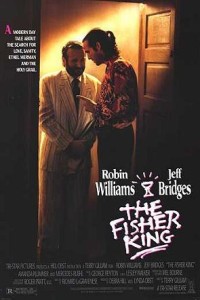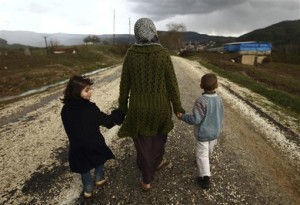
“Ok Mark, I believe in you. We need this run, but don’t worry about the two outs, don’t worry about the loaded bases, just focus on the next pitch, got it?”
I nodded. The batting helmet, two sizes too small for my head, fell off. Again. The only helmet that fit my head was the one we inherited from the junior high kids, and David Rezick always used it because he knew that if he got a hit I’d have no helmets that could stay on my head. Rezick was standing at second base.
Coach R picked the helmet up out of the dirt and brushed it off. “You can do this. If you can just get one run in, we tie the game, ok? I put you in the number two spot in this lineup for a reason, you know that? You deserve it. You’ll deserve it no matter what happens in this at bat. Just play your heart out, you’ve got a big one.”
I rubbed my nose. “I’m pretty sure a big heart is a health problem, coach.”
“Shut up, Mark. Just get on the Goddamn base, ok, big guy? Get on base.” He trotted back to the dugout, spitting in the ground as he got there. Five or six of the 10-year-olds sitting the dug out spit in response, a Greek chorus chomping on Big League Chew. I stepped up to the plate.
The umpire looked me in the eye. His eyes narrowed to slits, remembering me from the last two at-bats. Randy Stein’s older brother Adam was a sophomore and had classes with the ump, and Randy said he was a jag-off, so we took it as gospel that he was obviously, then, a jag-off. Jag-off, as in, “this jag-off better call the game fairly.”
“PLAY BALL” the jag-off yelled, pulling his facemark on.
I stepped up to the plate, right to the very edge of the batter’s box. I saw my father standing up, shielding his eyes with his right hand. My mother was sitting on a lawn chair next to him, my little bother was in his baseball uniform sitting on the grass. The t-ball league ended earlier in the day, so he was eating whatever snacks my folks had packed and picking at dandelions. Or maybe he was picking at the snacks and eating the dandelions, I don’t know. What am I, a high elf ranger? My eyes are terrible, I can’t see that far.
I can make out the sound of my family cheering for me, but the helmet is pinching my ears.
I look up at the pitchers mound. The pitcher is tall, the tallest 6th grader in the league. His fastball is so strong that it was whispered that he once broke a catcher’s hand, like Dwight Gooden. It was so fast that, to hit it, you had to start swinging before you even stepped up to the plate. When we heard which team were facing for this game, we knew exactly who would be pitching: John Moon. John Moon, the biggest arm in Morton Grove Little League, the terror of Mansfield Park.
I wiped my brow, caking my hand in dirt and sweat and gatorade. I was nervous, a kind of nervousness that only baseball players feel, the nerves that come from being alone against the storm. There are reasons why poems are written about being at-bat; its a microcosm of life, you know? I had to have absolute concentration if I wanted to have any shot at all of
“STRIKE ONE!”
What the heck oh crap, geez, really? C’mon Mark, pay attention, I thought, punching myself in the hip.
“HEY MARK PAY ATTENTION WILL YA?” Coach R yelled from the third base dugout, adjusting his cap. I had played for him for three straight years, and about once a year he would show up to practice without his ball cap and we would all be surprised that he was bald, all over again, every year.
Alright, I can do this. I can do this. I turned to face John Moon, the Howitzer of the North Shore, gripping the bat tight as I steeled my nerves. I’m gonna be a hero, like Frodo or Peter Parker or Willis Drummond, and I just had to focus on the moment and not think about how itchy this jock strap is and
“STRIKE TWO!”
A collective groan came up from the Greek chorus. Coach R folded his arms and spit again. A voice cried out “That was three feet out of the strike zone, jag-off!”
The ump whipped off his facemark and wheeled around to face the spectators. “I will kick you out of here if if you use that language again, do you hear me?” the ump yelled, pointing his finger at the stands on the first base line, “and I mean it, ma’am.”
“MOM SIT DOWN,” Rezick screamed from second base.
I squared my stance, spitting into my hands. The spit helps to remove dirt that can decrease your grip, so the bat is easier to control. Aluminum bats can be really painful if you connect on a good swing, which makes it weird that little leagues tend to use them. I guess its because of their durability? Or the lower expense? Maybe there is, like, an aluminum conspiracy or
“PAY ATTENTION THIS TIME, BUDDY, YOU KNOW WHAT TO DO.” Coach R called, soft chirps of agreement coming from the dugout.
John Moon looked at the signal from his catcher. We all used signals, even though no one was allowed to throw anything but a fastball. Curveballs can hurt your arm development, so the league outlawed them. He stood up, exhaled loudly, then started his wind up.
I tightened my grip on the bat, inhaled as hard as I could and did what I had done many, many times before, what I did better than anyone else in the league, maybe in the whole Chicagoland area: I crowded the damn plate.
A wet smack, louder than you’d expect, and my hip felt like it was on fire. My helmet fell off and I dropped my bat.
“TAKE YOUR BASE” yelled the jag-off, “…AGAIN.” The crowd roared, or as much as about a dozen people can roar.
The ball had struck me on the thigh, on the meaty part, and I left out a manly yell. Or, in my head I Let out a manly yell. I was told later that I screamed like a little girl, but that’s ok. I knew my job, and I did it.
“YEAH! YEAH! Way to go, Mark!” Coach R was jumping up and down. The dugout was a mass of jumping, cheering, and sunflower seeds.
“Way to go, Ma-Mark! Way to go!” my father yelled, clapping his hands and high fiving my brother. “Tie game!”
My mother was clapping, smiling, and shaking her head. “Why does he never get out of the way? Why is this always happening to him? No one else gets hit like this.”
I picked myself out of the dirt (when did I fall?) The third base runner came jogging into home plate, fist pumping. We high fived, and he said “Great job, Mark, I knew you’d get hit.” I smiled and whimpered a “damn right.”
I limped to first base, holding my helmet in my hand. I gave a thumbs up to Rezick at third.
John Moon’s first baseman looked at me, his grimace softening into a smile. “Nice job. You’re crying less than you did the last time.”
“Thanks, man,” I replied, “That’s what I said to your mom last night.”









